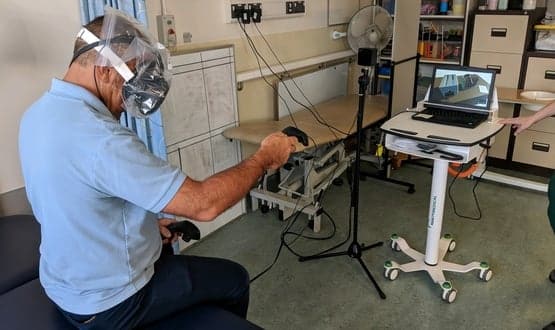A partnership involving an NHS hospital in Chester has received more than £400,000 in funding so it can explore the possibility of using virtual reality (VR) to help stroke patients.
The University of Chester’s medical graphics team and the stroke department at the Countess of Chester Hospital believe VR can be used to help people following a stroke.
In particular, the organisations are exploring how a VR headset could be used to give patients the ability to practice and relearn daily activities, such as putting bread into a toaster.
A funding grant of £453,000 has been awarded to the project from the government’s Digital Health Technology Catalyst (DHTC) programme.
Nigel John, from the University of Chester, said: “Our aim is to reduce the duration and cost of long-term care by enabling intensive rehabilitation both in hospital and in the home, using affordable technology. The VR stroke programmes will adapt to each user’s needs and can be operated with minimal supervision, meaning they do not need to rely on family and carers.
“Patients will be able to measure how well their cognitive abilities are improving, building confidence in their ability to perform everyday tasks and reducing the psychological trauma often associated with the condition.”
The project, which also involves the participation of 3D scanning firm Cadscan, was one of eight to receive a share of £17million from DHTC.
The DHTC is a £35 million fund being run over four years that that aims to address challenges around the development of new digital health innovations, including solutions that can be commercialised for use in the NHS.
The Countess of Chester Hospital is part of the Countess of Chester Hospital NHS Foundation Trust, which recently signed a 15-year agreement to implement the Cerner Millennium electronic patient record (EPR) system.


23 October 2018 @ 10:07
Yes this is a worthy information for us.Nice discovery about stroke patients and their treatment Thanks a lot!
https://healthpharmaci.com